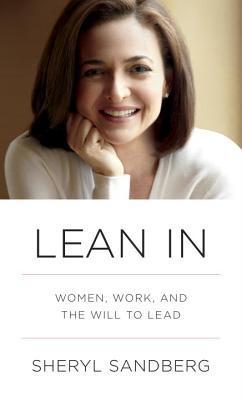Intersectionality: race, class, and sexual identity
Author bell hooks wrote a critical analysis of the book, called "Dig Deep: Beyond Lean In". [14] hooks calls Sandberg's position "faux feminist" and describes her stance on gender equality in the workplace as agreeable to those who wield power in society—wealthy white men, according to hooks—in a seemingly feminist package. hooks writes, "[Sandberg] comes across as a lovable younger sister who just wants to play on the big brother's team." [14] hooks states that mass media, along with Sandberg, tells us that any woman willing to work hard can climb the corporate ladder all the way to the top. The article further argues that Lean In ignores "the concrete systemic obstacles most women face inside the workforce." hooks reasons that instead of the "Lean In" campaign inciting social change, its purpose is to provide women advice on how to become successful within existing conditions, and that effectively, Lean In does not consider the reality of intersectionality, which has been a growing subject in the contemporary feminist movement.
The main elements in hooks' article, such as race, class, and sexuality, draw from her work Feminism Is For Everybody. In the book, hooks describes how not all women are made equally – there is not a homogenous identity for women. [15] hooks states that privileged white women know that their status is different from that of black women/women of color (pg.10); reformist white women with class privilege want the freedom they see men of their class enjoying (pg.38); and heterosexual women appeal more to men and society (pg.97).
Kathleen Geier discussed in the article "Does Feminism Have a Class Problem?" [16] that Sandberg's philosophy was that if more women advanced into leadership positions then all women would gain. Geier's response to this assumption was: "there is little reason to have faith that Sandberg-style 'trickle-down' feminism will benefit the masses any more than its economic equivalent has … her enthusiasm for capitalism and her advocacy of a depoliticized strategy that focused on self-improvement rather than collective action troubled many feminists on the left." [16] Geier advises that the only effective and lasting way to advance economic equality is through collective political action; implementing some programs such as universal childcare, paid family and sick leave, and a European-style cap on work hours would resonate for women of all classes.
In the same The Nation article, Judith Warner, a senior fellow at the Center for American Progress and author, parallels Geier by saying that feminism should focus on structural problems and not individual adaptation. Women need to find experiences that unite them without forgetting the differences of class, race, education, and empowerment that set them apart. Warner also advocates that one of the most effective actions toward gender equality is fighting for meaningful workplace flexibility.
The third contributor to The Nation article is Heather McGhee, president of Demos. She explains that a business model that relies on suppressed wages on those who are at the bottom of their society's social and political hierarchies – women as well as that of immigrants, people of color, and the poor – will not be feminist when a woman breaks through as a CEO. McGhee mentions some statistics gathered by Demos, which shows that retail's gender pay gap costs women an estimated $40.8 billion in lost wages annually, a total that will rise to $381 billion cumulatively by 2022. McGhee advocates that bridging the pay gap should be a focus for women.
Along with Kathleen Geier, Judith Warner, and Heather McGhee, Nancy Folbre, an economics professor at the University of Massachusetts Amherst, discussed in the article about Lean In with relation to intersectionality. Folbre illustrated intersectionality as the following, "it's more-than-four-way intersection, there's no traffic light and people often don't know which way to turn. Some, driving luxury SUVs, will be perfectly safe. Others, on foot, are likely to get hurt. Gender is an important vehicle of collective identity. So too are class, race, ethnicity and citizenship." Folbre continues to say that Lean In vindicates intersectional analysis as the focus of inequality in the book was only based on gender. Moreover, the book speaks to a selected few of women who are seeking to advance their careers, not those who are struggling to find and keep a stable job.
Susan Faludi argues that challengers of Lean In cannot argue against Sandberg without mentioning her wealth. Faludi expresses that a problem with the "Lean In" venture is that it leaves out single mothers: "Lean In offers a faux liberation for single mothers, as they couldn't 'lean in' if they wanted." [17] Furthermore, Faludi reasons that improving the lives of single mothers requires more than showing women of privilege how they can further advance themselves in society. This standpoint correlates to contemporary feminists who argue for social and cultural change to support "mothering" (including single mothers) as an empowering rather than oppressive experience. [18]
In 2015, OR Books published Lean Out: The Struggle for Gender Equality in Tech and Start-up Culture , edited by Elissa Shevinsky, which included a number of essays that make the above points and recount a variety of experiences of just how big the barriers for women in tech really are.
In 2019, author Minda Harts released her first book, The Memo: What Women of Color Need to Know to Secure a Seat at the Table. [19] The book was compared to Lean In, but tailored to the specific needs and experiences of women of color. It provided an in-depth look at the racism and sexism women of color face in the workplace and offers strategies to help them achieve their career goals. [20] [21]
